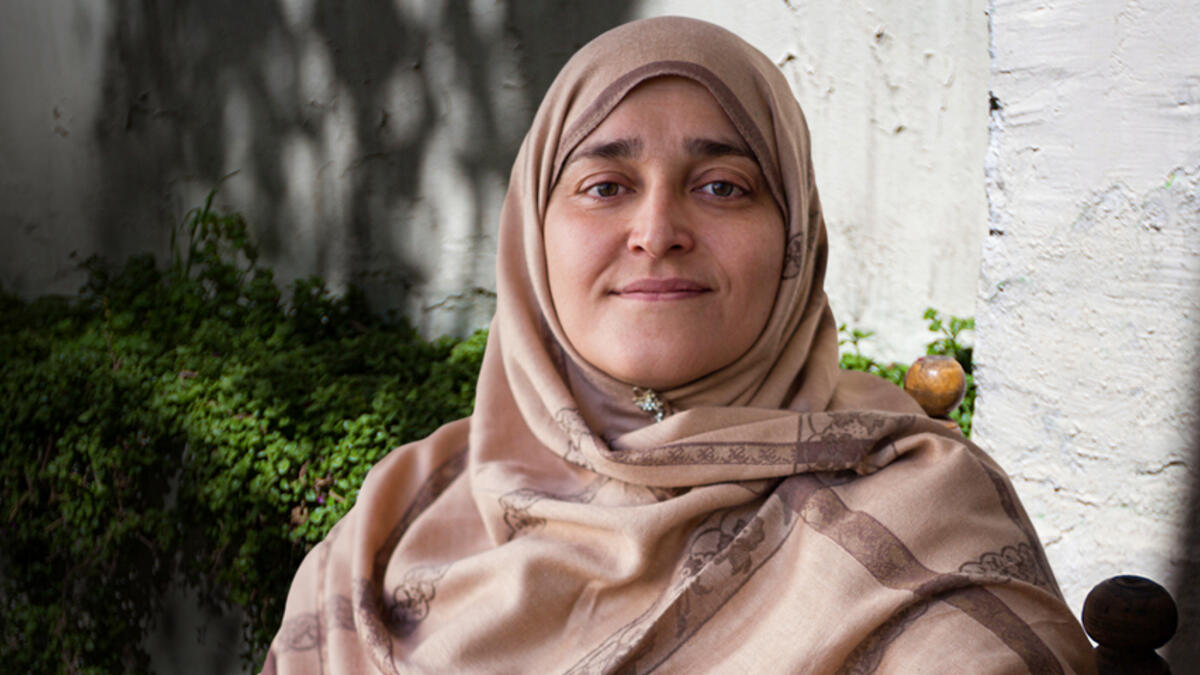Women's rights advocate to discuss plight of Afghan women at ASU

Jamila Afghani will join ASU's School of Social Transformation on Feb. 28 to share an insider's view of the plight of Afghan women since the Taliban return to power. Courtesy photo
It was a chance encounter on the street one day, during the Soviet-Afghan War, that made Jamila Afghani realize the true degree of poverty and suffering that was occurring in her home country of Afghanistan.
After seeing a woman begging on a street corner with her children, Afghani went to offer her money and asked how she had ended up in such a situation.
“The woman started to cry. Her village had been destroyed. The Pashtun tribe had torn apart the homes in her community in Afghanistan, and they had sexually abused the women there. While she was grateful to have survived, she couldn’t afford to feed her children or herself. Begging for coins was her only hope,” Afghani said.
“It was devastating to witness such desperation.”
Soon after, Afghani, who unlike many Afghan women had been fortunate enough to get an education and was in a position to be able to help others, began giving embroidery and tailoring lessons. Those lessons led to the formation of a professional development educational NGO (nongovernmental organization) that encourages women to find their empowerment and teaches them the skills to support themselves and their family.
On Wednesday, Feb. 28, Afghani will join Arizona State University's School of Social Transformation to discuss the plight of Afghan women since the Taliban return to power. An educator, human rights defender and Aurora Prize for Awakening Humanity award winner, Afghani will highlight human and women’s rights violations in Afghanistan and explore ways that she and others hope to assist Afghan women.
Born in Afghanistan in the 1970s, Afghani found comfort in books at a young age and begged her parents to be enrolled in school. Schooling for girls from well-off families was very unusual, but Afghani used her disability from a bout of polio to persuade her father that she would need to be more independent than most women.
Her father went along with her long enough for her to finish eighth grade. That was when the family had to go into exile in Pakistan, where Afghani finished high school, college and a master’s program, mostly in secret.
Over more than 25 years of running her organization, Afghani has promoted this key idea: “When you educate a woman, you educate an entire family. Their learnings are shared. If you light one candle, they can light others around them. This is the key to an enlightened society.”
Join the School of Social Transformation on Feb. 28 from 2–3:30 p.m. in Novus 345 for a conversation and Q&A with Afghani. Light refreshments will be provided.
More Law, journalism and politics

How to watch an election
Every election night, adrenaline pumps through newsrooms across the country as journalists take the pulse of democracy. We gathered three veteran reporters — each of them faculty at the Walter…
Law experts, students gather to celebrate ASU Indian Legal Program
Although she's achieved much in Washington, D.C., Mikaela Bledsoe Downes’ education is bringing her closer to her intended destination — returning home to the Winnebago tribe in Nebraska with her…

ASU Law to honor Africa’s first elected female head of state with 2025 O’Connor Justice Prize
Nobel Peace Prize laureate Ellen Johnson Sirleaf, the first democratically elected female head of state in Africa, has been named the 10th recipient of the O’Connor Justice Prize.The award,…